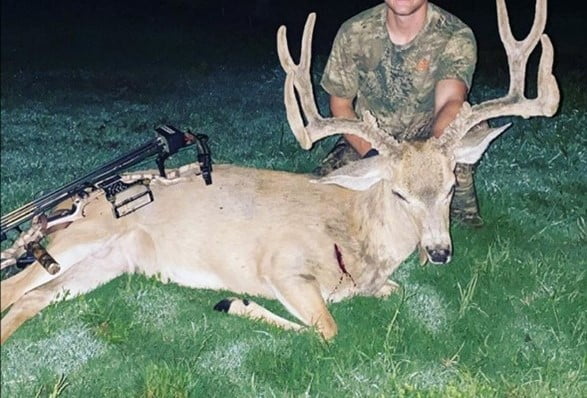
SALEM, Ore.—The Fish and Wildlife Commission met Friday, Sept. 14 in Bandon at the Bandon Community Center, 1200 W 11th Street SW.
Director Melcher opened the meeting with an expression of sympathy for family and friends of Diana Bober, the hiker who lost her life in a cougar attack near Mt. Hood.
The Commission adopted big game hunting and sport fishing regulations for 2019. The major changes adopted for big game hunting are related to an effort to simplify regulations first announced in late May 2018. (See May news release and table for list of all simplification proposals.)
As adopted by the Commission, the 2019 regulations will allow mechanical broadheads for big game archery hunters and reduced the required bow draw weight for some big game species. Staff proposed the changes to simplify regulations and allow hunters to choose equipment based on performance and their own personal preference.
The Commission also adopted 2019 Sport Fishing Regulations at the meeting. The changes further simplify salmon and steelhead seasonal regulations. There are also changes that increase the possession limit from two to three daily limits for trout and warm water fish; and standardize striped bass regulations by removing all size and bag limits statewide. For more details on proposed changes by zone see Exhibit C of the Commission packet on www.odfw.com.
During the sportfishing regulations portion of the meeting, the Commission also considered a petition to prohibit retention of wild winter steelhead throughout the Southwest Zone. The Commission denied the petition and directed staff to develop a multi-species conservation plan. The Commission reduced the bag limit to one wild steelhead per day and three per year on all streams in the Southwest Zone that currently have an annual bag limit of five wild steelhead beginning January 1, 2019.
The Southwest Zone is legitimately difficult to access. Steep timbered slopes with little road access sets the Southwest Zone apart from other regions in the state with relatively open access. Anglers are typically concentrated at river mouths and bridge access sites. A conservation plan is only hindered by involved stakeholders genuinely agreeing to, and following through with commitments to involve citizens groups.
Conservation is often described as a complex issue to be put off until further research can be conducted. This conservation can cannot be kicked down the road any further. The road we’re on ends at the intersection of season closure and extinction. It doesn’t have to be that way though. Many streams can be restored with nothing more than a shovel, a string trimmer, and a chainsaw.
Additionally, the Commission denied a petition to initiate rulemaking which could result in listing the Humboldt  marten as endangered or threatened under the Oregon Endangered Species Act. Staff recommended denying this petition, as it does not provide scientific evidence to substantiate claims of current threats and that Humboldt marten populations are in decline.
marten as endangered or threatened under the Oregon Endangered Species Act. Staff recommended denying this petition, as it does not provide scientific evidence to substantiate claims of current threats and that Humboldt marten populations are in decline.
I had a degree of contact with the group researching Humboldt martens in the Lower Rogue River watershed. They trekked into the tributaries and discovered what any seasoned hunter could tell them. Martens are here in decent numbers. They are shy but curious woodland creatures. I amazed one of the researchers by pointing to a marten that lived in in a thicket of blackberry and scrub brush on Lobster Bar. Oregon has been transitioning to selective harvest which maintains the integrity of the canopy while allowing for truly sustainable forestry.
In 2017, the Oregon Legislative Assembly directed ODFW to create a program to offer big game preference points in lieu of a cash reward for people providing information leading to citations or arrest of poachers. The Commission approved administrative rules for this program, which were developed by ODFW, Oregon State Police and Oregon Hunters Association (the sportsman organization that administers the Turn In Poachers program). Under the adopted rules, people that provide information leading to an arrest or citation may choose to receive five preference points in cases of unlawful take, possession or waste involving moose, mountain goat, bighorn sheep and wolves and four preference points for cases involving bear, cougar, deer and elk.
Finally, the Commission approved an amendment to a memorandum of understanding with the Confederated Tribes of the Warm Springs Reservation regarding off-reservation hunting; funded several Access and Habitat projects (which open private land to hunting access or improve wildlife habitat); and modified licensing rules so they are in keeping with ODFW’s new Electronic Licensing System launching Dec. 1, 2018 for the sale of 2019 licenses.
